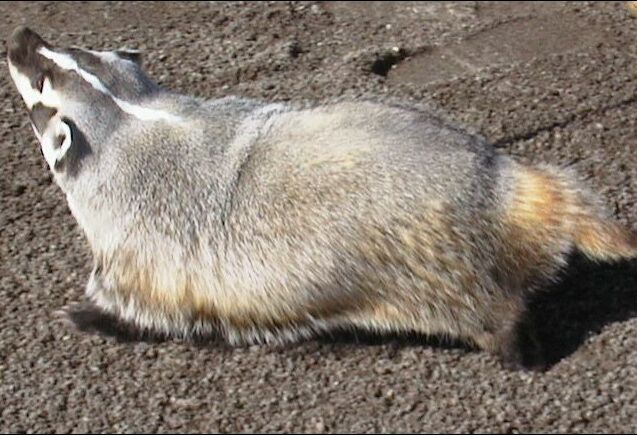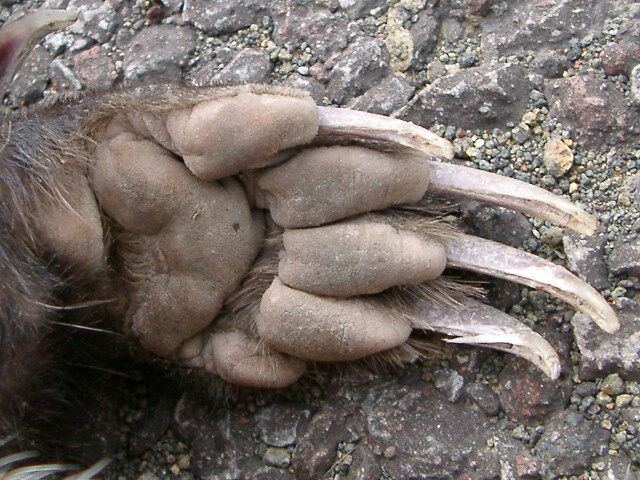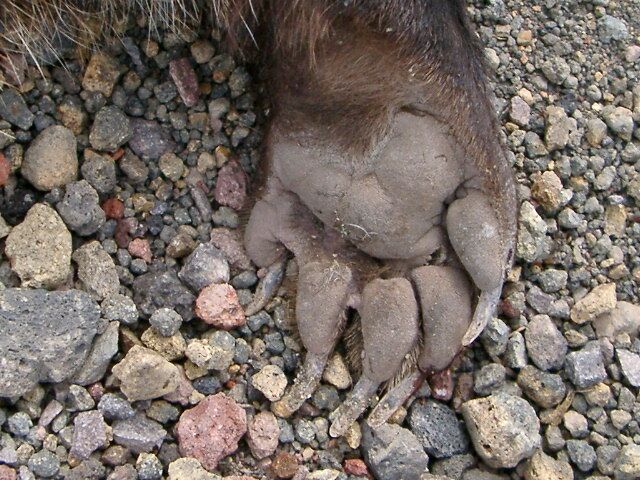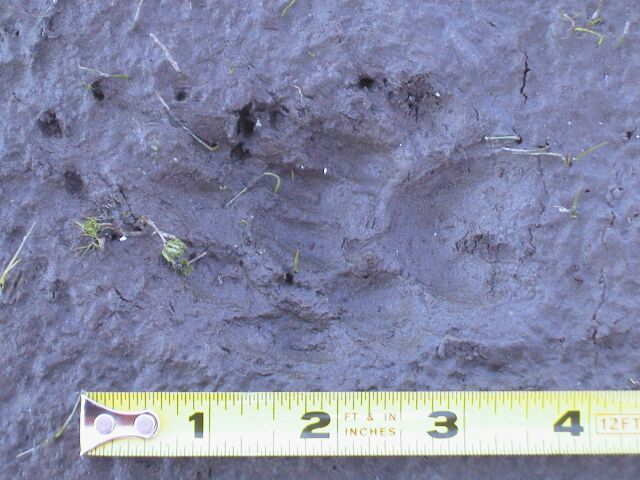Gait
After unsuccessfully looking at a lot of badger digs for tracks or scat, I was finally able to record badger tracks in mud at Slough Creek, Yellowstone National Park. The stride was longer and the straddle narrower than I anticipated. The tracks were characteristic of the mustelids though direct register made it hard to separate out features of both front and hind. However, the long nails clearly indicated a digger.
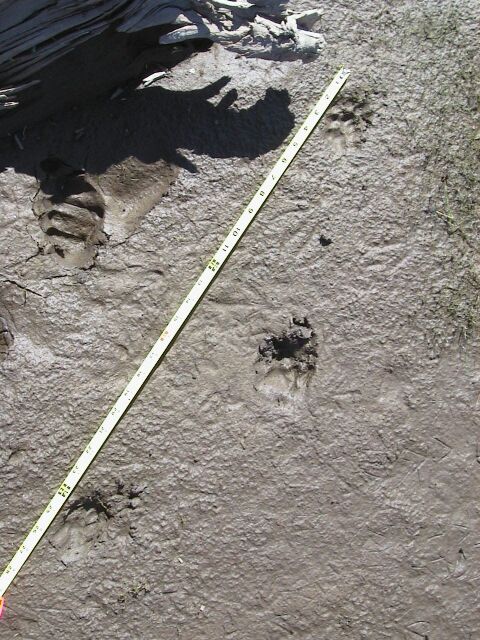
An area used heavily by a badger will be pock marked by all the digs made while feeding.
Snow
In December I was looking for wolves up the North Fork of the Flathead in Glacier National Park
with a friend when I was surprised to discover badger tracks in snow. At first the
pigeon-toed gait and body trough made me suspect porcupine but something was not right. Following the
track we found that the animal had investigated holes in the ground and had dug several new holes.
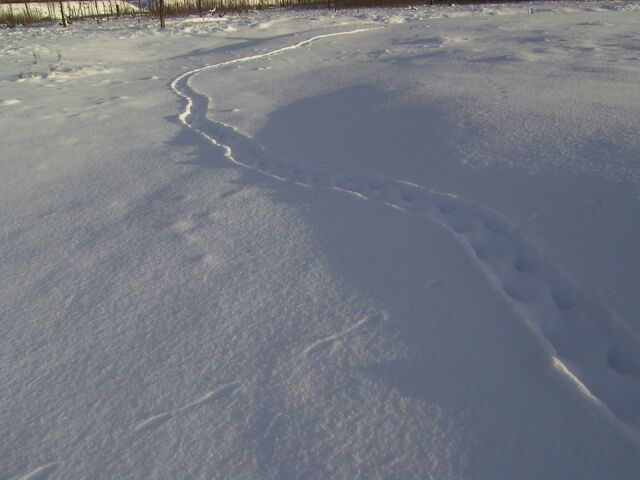
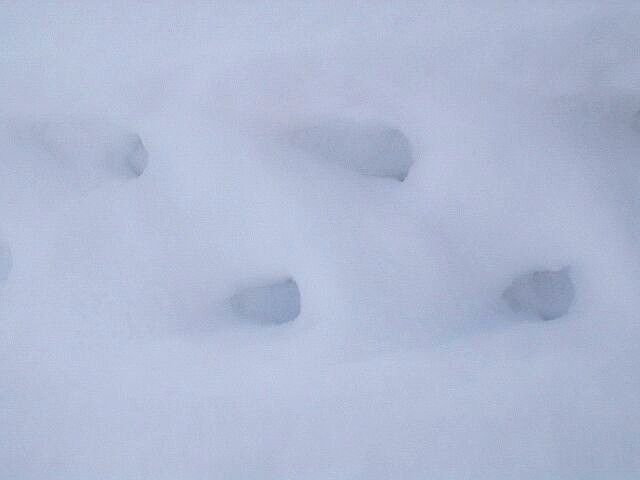
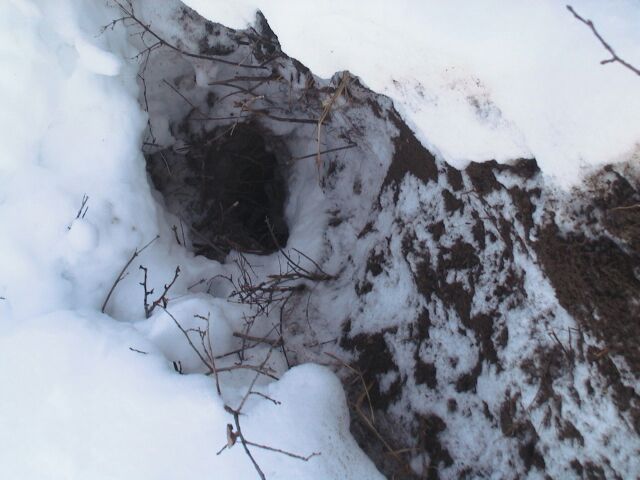
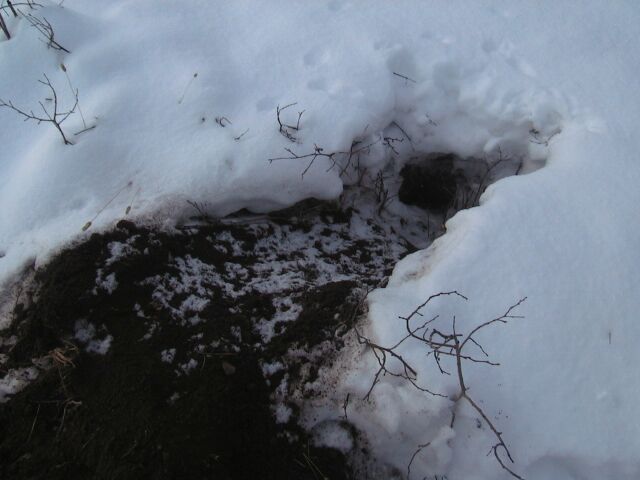
Digs
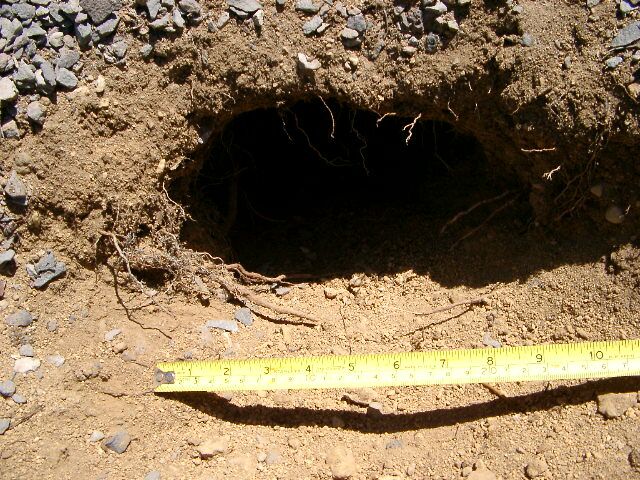
Return to Menu
